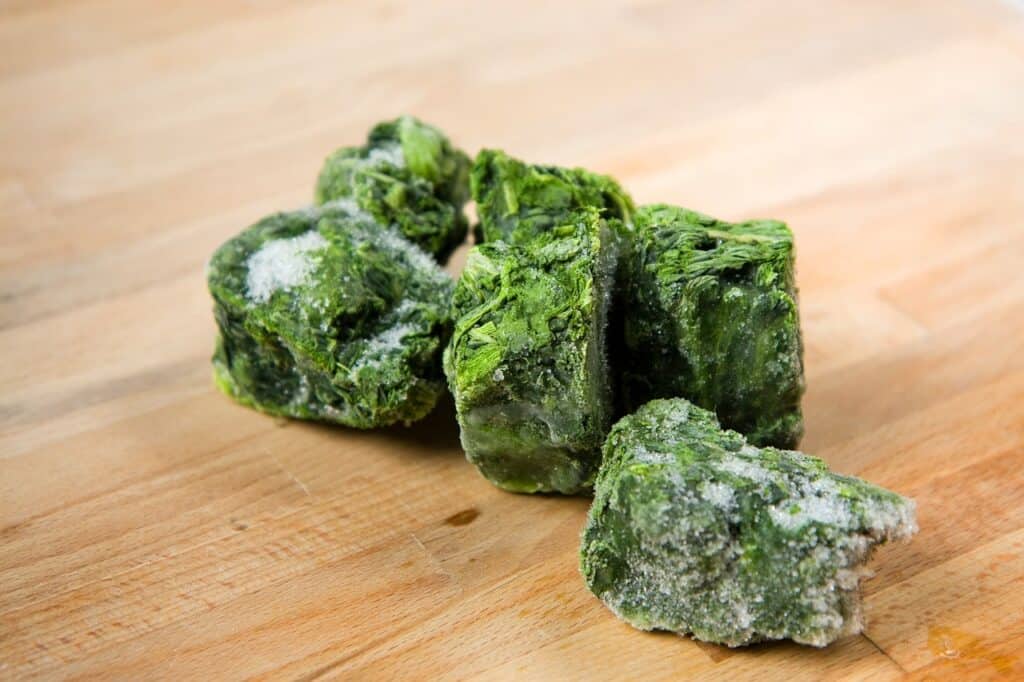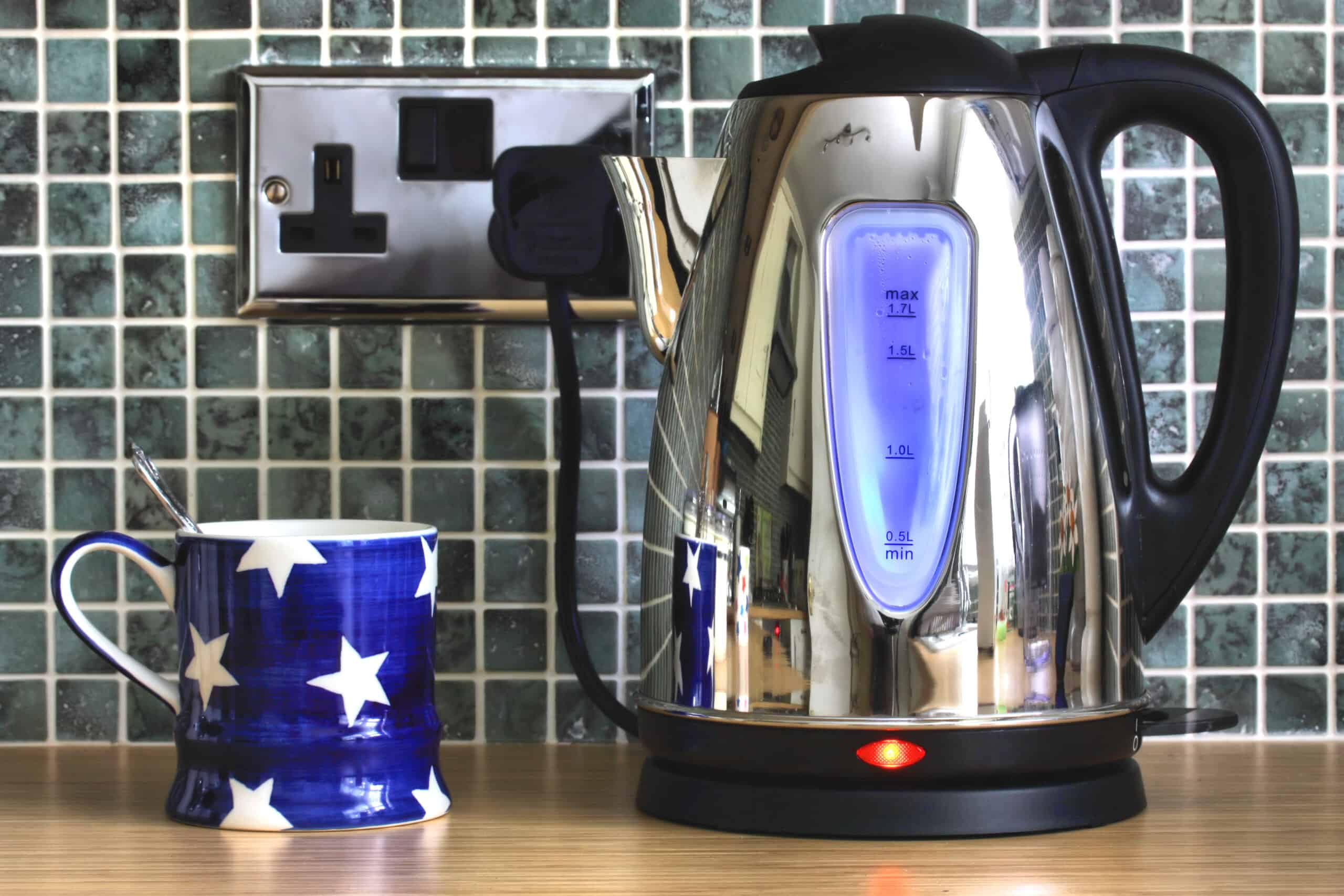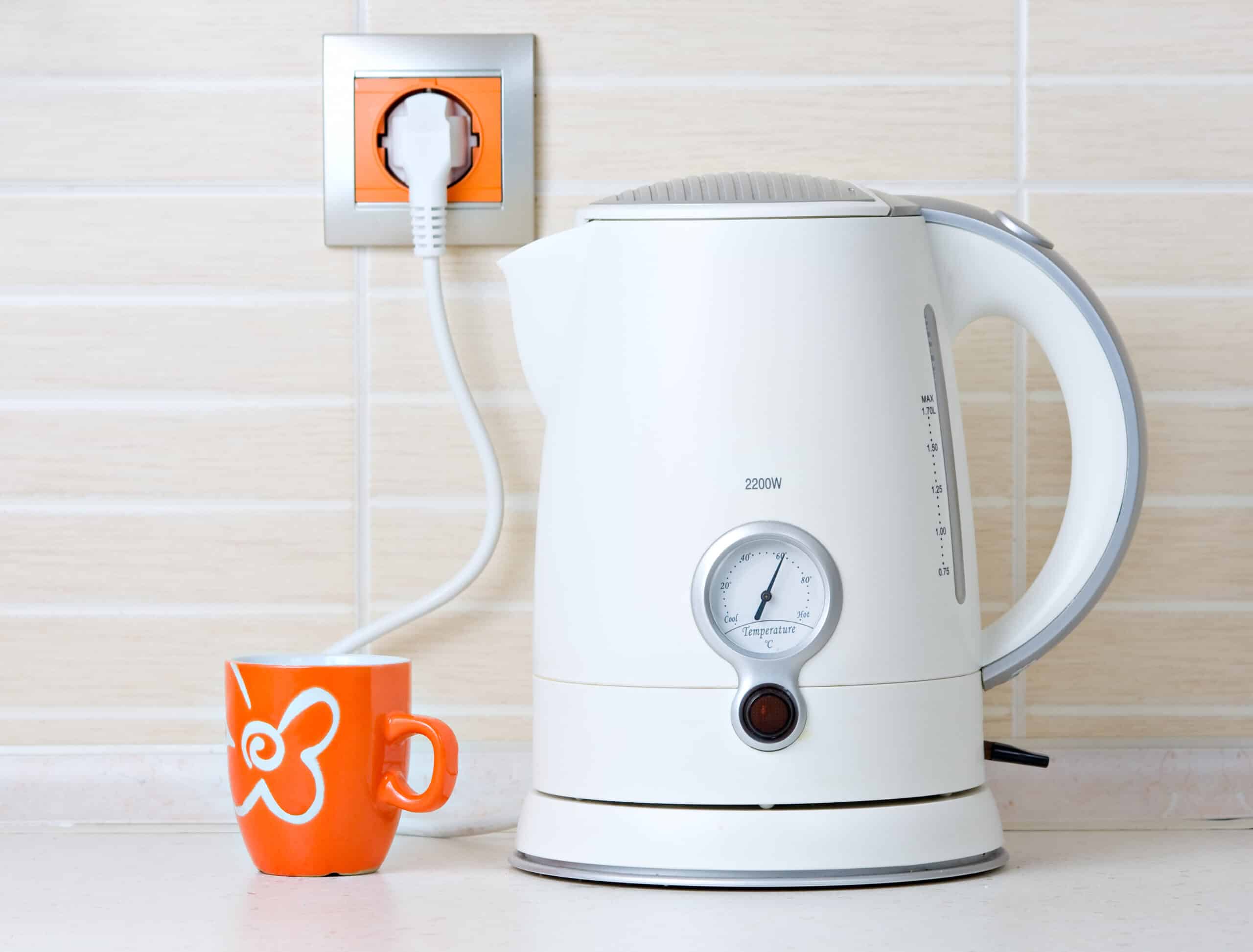Freezing is one of the methods that is used for the preservation of foods.
When food is frozen, then solidified, there is a change in the buoyant force of the items. As a result, they will tend to weigh more due to that change in buoyancy. That is why your frozen food feels heavier than those stored at room temperature.
It is also important to note that there is a lot of water in the food products. When frozen, the water in that food expands and displaces air, increasing the food’s weight.

Does Frozen Food Weigh More Than Unfrozen Food?
First, it is notable that when the food is frozen, there is a change of state, which also comes with some change in the product’s density. For instance, when you freeze your meat, there is a change in the state of water or other fluids in that meat.
Due to that change in form, the density of that meat also changes; therefore, it can be heavier than meat that has not been frozen.
It is, however, necessary to note that density is not the same as weight. The term “heavier” is comparative, meaning that the weight measures for frozen foods are compared with those that are not frozen.
Regardless of the quantity, the volume may remain the same, but the weight could change due to the density change affected by the states of matter.
It is also imperative to note that when freezing your food, there is also a potential change in the environment around it which could change in state and impact the weight. This could include converting the air that can change to solid and get attached to the food, even in minute quantities.
Do You Weigh Food Frozen or Cooked?
Food is weighed when it is frozen and not when cooked. The rationale is that when preparing your foods, you follow a specific recipe in which the quantities of each ingredient are already known. In that case, it would not make sense to measure the weight of the food after cooking.
Additionally, it is also important to note that for food to be frozen, the primary motivation is to ensure that they are preserved and that it can stay longer. In most cases, the food is frozen to be sold later.
Therefore, it makes much sense for the food to be weighed when frozen since that will determine the specific quantities the consumers desire.
For instance, when meat is converted into brawn, it is weighed in specific quantities, and the customers are provided with that information for their decision-making when making purchases.
For health and fitness, we must follow specific dietary requirements and needs. This way, the best and most important strategy is to measure food quantities before cooking and ensure they are all logged.
Each individual’s nutritional needs depend on their diet and current health status. In this way, a nutritionist may offer a targeted diet plan for the clients. To ensure that they meet these requirements, weighing different foods before they can be prepared ensures they consume the exact amounts prescribed by the nutritionists.
One of the reasons for ensuring that they are weighed before they are cooked is that many changes could take place, including evaporation of the water within the food products. Additionally, during the preparation of the food, many other additives are used that could also lead to false weight.
Are Calories On Frozen Food Accurate?
If you are keen on measuring calories in your diet, you might want to leave a margin of allowance. You probably take in more calories if you rely on frozen foods or fast food. Most frozen foods differ from the stated calorie values and the actual ones.
However, this should not be a big problem for those on a diet routine. The US Food and Drug Administration (FDA) allows a 20 percent margin for processed packaged food. The regulation also demands restaurant meals to have the same margin.
With this information in mind, you can plan how much to consume at a given time. However, you should note that the extras that come with the food are listed differently. Therefore, check your package for the exact number of calories.
For instance, a sandwich may be taken with tomato, and the next time it may be eaten with mayonnaise. Always remember that many restaurants will not disclose the number of calories in frozen products. And if they do, it is not always accurate.
Have a buffer allowance when counting the calories on your frozen products. Sometimes they may be higher or lower than the stated values. However, the allowable margin should not exceed 20 percent due to FDA regulations.
Can Frozen Food Go Moldy?
Generally, your food will not go bad if the freezer is working correctly. It will not pose any health issues irrespective of the time stored.
However, note that if you neglect cleanliness, certain microbes may grow since some can survive cold temperatures.
Therefore, your frozen food may become moldy if you do not maintain cleanliness. Certain microbes can survive even at -15 degrees Celsius. Therefore, clean your freezer and refrigerator regularly before storing your foods.
Fortunately, most foods are labeled with instructions on how to store them to prevent contamination. The package instructions will include the optimal temperature for storage and recommended freezing period.
Moldy food is harmful and should not be consumed. It contains harmful bacteria that can lead to food poisoning. Also, moldy food may contain mycotoxins which can lead to cancer. A good example is Aflatoxin which is contained in peanuts and corns.
Overall, do not freeze your food for too long. Several months is okay. Purchase food products that can last for about three months. Remember that frozen foods lose their natural taste when kept for too long.
What if you have consumed mold by mistake? Here’s a video explaining that instance:
Final Thoughts
Most foods cannot be stored for a long time without freezing. Freezing ensures that our food is free from bacteria growth even when stored for months. However, maintaining cleanliness in your freezer ensures your food does not get moldy.
Usually, frozen food weighs more due to water retention. It is essential to weigh your food before cooking since some elements are lost after heating.
Also, remember to give an allowance on the stated calories on frozen foods. Some have a higher or lower number of calories than the stated values.





